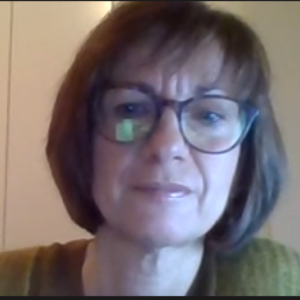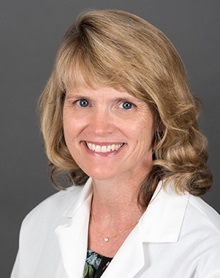
Sinds de toekenning van onze eerste onderzoeksbeurs in 1999 leiden wetenschappers van wereldklasse het onderzoek naar progeria naar nieuwe doorbraken en behandelingen die kinderen met progeria helpen langer en gezonder te leven.
PRF plant de zaden van onderzoek op de meest geavanceerde gebieden van de wetenschap.
DONEER vandaag en maak de genezing MOGELIJK!
Maak kennis met onze onderzoekers
Vragen en antwoorden met Giovanna Lattanzi, PhD, moleculair geneticus in Bologna, Italië.
 We zijn verheugd om een van PRF's toegewijde onderzoekers te presenteren, Giovanna Lattanzi, PhD, een moleculair geneticus in Bologna, Italië. We stelden Giovanna een paar vragen over het onderzoek dat ze doet en wat het voor haar betekent. Dit is wat ze zei:
We zijn verheugd om een van PRF's toegewijde onderzoekers te presenteren, Giovanna Lattanzi, PhD, een moleculair geneticus in Bologna, Italië. We stelden Giovanna een paar vragen over het onderzoek dat ze doet en wat het voor haar betekent. Dit is wat ze zei:
PRF: Wat heeft u ertoe aangezet om onderzoek te doen naar Progeria?
Johanna: Mijn interesse in Progeria-onderzoek begon in 2003, zodra de LMNA-mutatie in verband werd gebracht met HGPS. Ik was al betrokken bij LMNA-onderzoek, waarbij ik verschillende LMNA-gerelateerde ziekten bestudeerde die tussen 1999 en 2002 waren ontdekt.
PRF: Hoe gaat het met je werk in het Progeria-onderzoek?
Johanna: Werken aan Progeria is spannend, omdat je ziet dat elk aspect van de pathogenese van Progeria gelinkt is aan fundamentele processen van ons organisme. Sinds we begonnen te werken aan Progeria, begrepen we veel nieuwe biologische mechanismen die het gemuteerde eiwit, lamin A, linken aan celontwikkeling, vetweefselmetabolisme en veroudering.
PRF: Waar bent u het meest enthousiast over wat betreft de voortgang van uw onderzoek?
Johanna:We worden steeds enthousiaster, omdat we onlangs hebben ontdekt dat defecten in de stressreactie, die ook leiden tot ontstekingsreacties, de basis vormen van HGPS en, nog belangrijker, kunnen worden tegengegaan door behandeling met biologische therapieën.
PRF: Wat wilt u dat de Progeria-gemeenschap begrijpt over de richting die uw onderzoek opgaat?
Johanna: Ons onderzoek richt zich op een fundamenteel aspect van ziekte, de veranderde reactie van cellen en weefsels op stress, en we denken dat het vinden van een modulator van stressrespons een effectieve behandeling kan bieden. Bovendien zijn we ervan overtuigd dat, zoals bij veel andere ziektes, een combinatie van medicijnen nodig zal zijn voor de genezing. Het vinden van de juiste combinatie vereist een grote inspanning van onderzoekers: wij en collega's wereldwijd werken hard! Ik wil PRF bedanken voor hun geweldige werk met HGPS-kinderen en -families, voor het enthousiasme dat ze delen met onderzoekers en voor hun steun aan ons onderzoek.
Vragen en antwoorden met Dr. Catherine Gordon, endocrinoloog en botgezondheidsspecialist bij Boston Children's Hospital.
 Maak kennis met Dr. Catherine Gordon, endocrinoloog en botgezondheidsspecialist bij Boston Children's Hospital (BCH), die al bijna twee decennia een integraal onderdeel is van het Progeria Clinical Trial-team bij BCH. We hebben haar een paar vragen gesteld over haar ervaring met het werken met de kinderen tijdens hun klinische trialbezoeken en we hopen dat u geniet van het lezen van haar antwoorden:
Maak kennis met Dr. Catherine Gordon, endocrinoloog en botgezondheidsspecialist bij Boston Children's Hospital (BCH), die al bijna twee decennia een integraal onderdeel is van het Progeria Clinical Trial-team bij BCH. We hebben haar een paar vragen gesteld over haar ervaring met het werken met de kinderen tijdens hun klinische trialbezoeken en we hopen dat u geniet van het lezen van haar antwoorden:
PRF: Wat bracht je ertoe om geïnteresseerd te raken in dit werk?
Dokter G..: Ik had het geluk om Dr. Leslie Gordon ongeveer 20 jaar geleden te ontmoeten. Ik werd geïnspireerd door haar enthousiasme en haar verlangen om een remedie te vinden voor kinderen met Progeria. Leslie heeft een manier om elk teamlid zich gewaardeerd te laten voelen en maakte ons allemaal enthousiast over ons belangrijke werk om de levens van deze prachtige kinderen te helpen verbeteren.
PRF: Waar kijk je het meest naar uit bij deze proeven?
Dokter G..: Het is geweldig om het multidisciplinaire team te zien dat is samengesteld, waarbij we ons allemaal richten op een ander aspect van gezondheid en complementaire gezondheidsresultaten onderzoeken bij getroffen kinderen. Het was vooral lonend om deel uit te maken van de eerste erkende behandeling (nu goedgekeurd door de FDA) om de levens van kinderen met Progeria te verlengen.
PRF: Is er iets wat u de Progeria-gemeenschap wilt laten begrijpen over de klinische onderzoeken?
Dokter G..: Hoewel we allemaal in het BCH-team toegewijd zijn aan de wetenschap die ten grondslag ligt aan Progeria, doen we het ALLEMAAL voor de kinderen! Er is niets bevredigender dan in klinisch onderzoek te zitten, waar we de mogelijkheid hebben om wetenschappelijke principes en concepten te verweven en ook deze geweldige kinderen en hun families te ontmoeten. Het "neemt een dorp" om een klinische proef uit te voeren, en elk teamlid en zijn of haar unieke rol in het team is belangrijk.
PRF: Wilt u nog iets toevoegen?
Dokter G..: Ik waardeer de steun van PRF, die ons aanmoedigt en ons de broodnodige financiële middelen verstrekt die ons werk op de lange termijn mogelijk maken.
